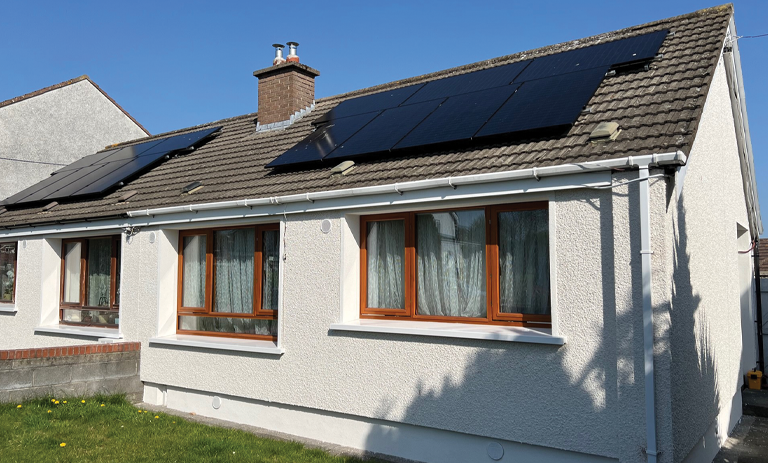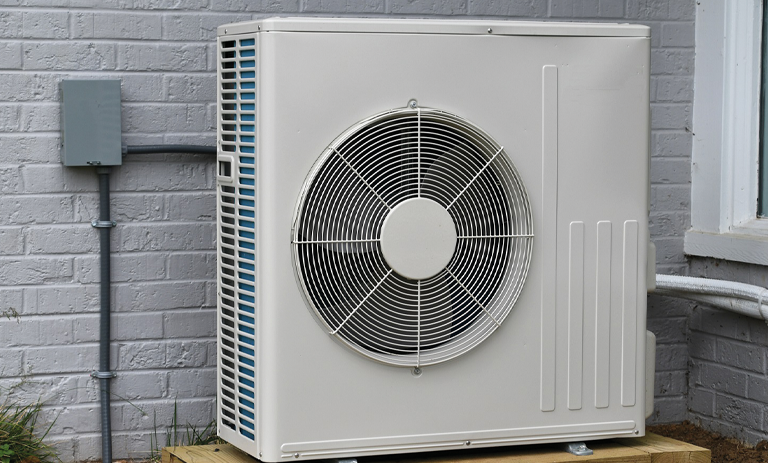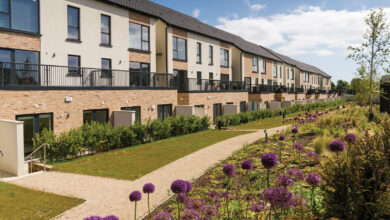Making social housing stock more energy efficient and cost effective for Fingal residents

After nearly two years of upheaval in the world had seemingly come to an end, no one could have predicted that 2022 would quickly usher in new economic turmoil and an unpredictable future for many.
War in Ukraine, growing inflation and an energy crisis were taking hold, pushing households from one challenge to another and bringing financial stress and unease as people looked at rising bills, including those from heating their homes.
Among the much-needed packages to help reduce the impact of higher prices being felt announced in the Budget this month, the increased funding to help improve the energy efficiency of more houses across the country is a welcome commitment. Whilst the more immediate short-term measures such as electricity credits and a fuel allowance payment boost will help those in need, it is the desire to seek a solution in the long run which we are especially keen to help progress further, particularly where there is a focus on supporting residential retrofits.
The decision to continue a countrywide retrofitting programme of this magnitude is to be commended. It is a tangible intervention that can help tackle several key underlying problems, including improving the energy efficiency of housing stock. Fingal County Council happily stepped up under last year’s pilot programme which has tapped into the significant level of central funding available that allows local authorities like ourselves to focus on upgrading our stock with energy efficient measures and provide energy efficient heating systems.
Over a four-month period in that first pilot phase, we successfully managed to retrofit the 65 council properties we had been allocated funding for, moving their BER rating to a B2 or higher level. That not only makes them much warmer and healthier for residents, but also helps reduce their energy usage and costs.
Orla Harte, Chief Architectural Technician at Fingal and the project lead on the Retrofit Programme explains: “This is a 10-year programme that will see us upgrade some 25 per cent of our housing stock to a B2 BER standard. As part of that we are carrying out a variety of works to each home in order to achieve that higher rating. Some of these could include triple-glazed windows, LED lighting, rewiring, external doors, PV panels on roofs, installation of heat pumps, an upgrade of external wall and attic insulation, and the upgrade of heating controls. Importantly, this work is all carried out with residents still living in their homes.”
The council teams involved – and our contractors doing the actual retrofitting work – learnt much during the 2021 pilot and this has been helpful as we have gone about delivery of our 2022 targets. Whilst we had been allocated funding for retrofitting 81 homes, given the nature of the approach we have taken we have managed to complete in the region of 100 properties. With the availability of additional funding to progress the rollout further in 2023, we hope to be in a position to carry out energy upgrade works to some 200 homes across the county.

Fingal’s Director of Housing, Robert Burns, says: “The Government’s ongoing commitment to prioritising retrofit works in housing stock means we are able to make some big gains, both environmentally and financially. We are taking a whole-house approach rather than doing this in a piecemeal way, which allows us to deliver a long-term investment that not only improves the energy efficiency of older homes but also helps residents reduce their energy bills at a time when many are feeling the pinch.
“This really is positive undertaking, and we want to start scaling up significantly moving forward, especially given how the Council’s teams have been able to establish an approach that can smoothly roll out from one allocated site to the next. In doing so, we have worked with tenants, contractors, and project partners in a collaborative way to help remove barriers and achieve meaningful progress as we carried out delivery of the programme. Striving to continuously improve our approach is something which we believe will help streamline the delivery, not only in Fingal, but nationally.”
“We are taking a whole-house approach rather doing this in a piecemeal way, which allows us to deliver a long-term investment that not only improves the energy efficiency of older homes but also helps residents reduce their energy bills at a time when many are feeling the pinch.”
Along with improving overall comfort levels for households and easing some of the angst when it comes to prioritising what their money goes towards, energy efficiency remains at the core of what we are delivering. That includes making homes less draughty, easier and more efficient to heat, and using renewable technology such as PVs to reduce the strain on existing services.
In the majority of upgrades we have done, that has meant ensuring that heat loss has been addressed. Estimates suggest that in winter a poorly insulated home could potentially lose up to 35 per cent of its internal warmth through the ceilings, another 25 per cent through the walls and up to 20 per cent through the floor and windows. With such a waste of heat from these, insulation and draught-proofing were a clear priority. So, in addition to the installation of low-energy loss front doors and triple glazed windows in a large number of homes in our retrofit programme, a great effort was put towards adding insulation. While this can be an expensive task to undertake in existing buildings, we felt that the long-term benefit for households – and ultimately the Council – significantly outweighed any short-term cost.
Where upgrades to the building fabric are a vital – but unseen – measure, it is the more noticeable additions such as roofs with integrated solar panels or air-source heat pumps which many will associate with the retrofit rollout. Heat pumps are now a common sight thanks to legislation around new builds, and as they are a proven technology that work exceptionally well, the economic viability of installing these is unquestionable.
Mayor of Fingal, Howard Mahony, believes what has been achieved recently is a positive step forward and hopes that the programme can kick-on. He says: “Transforming public housing stock so that it is helping reduce emissions is a challenge that Fingal has readily embraced. In doing so, we are not only helping improve the environment, but also helping residents across the county to save money at a time when there is a spike in bills that can sometimes be overwhelming.”
As our retrofit programme continues, there is certainly interest from communities in the county to see when they too may benefit from upgrade effort. Meanwhile, the feedback we have had from residents who have had retrofits is encouraging, with a feel-good factor on the environment being reported, electricity usage dropping by almost a half in some cases, others welcoming a better quality of life and a general amazement at having a constant supply of hot water.
However, this is the start of a bigger process. The Dublin Energy Masterplan – developed by Codema – has identified that residential properties are the highest source of emissions and if we are to meet the 2050 net zero emissions target, we need to find better ways to work together. Social and economic benefits from the proposals of the Dublin Region Energy Masterplan will be health benefits from an improvement in local air pollution and air quality as well as direct and indirect local employment generated. There will be a reduction in energy bills for residents and businesses, as well as warmer homes, a reduction of fuel poverty and importantly a much-decreased reliance on fuel imports.
The underlying tenet of a retrofitting programme is a no brainer for us in Fingal, even more so now as the cost of living continues to rise for many of our residents. What is more the programme is also helping us move towards net-zero targets and protect the environment at a time when it is vitally important to do so. We hope that we can now quickly replicate the success we have had thus far, particularly if we can also help streamline the system along the way.






